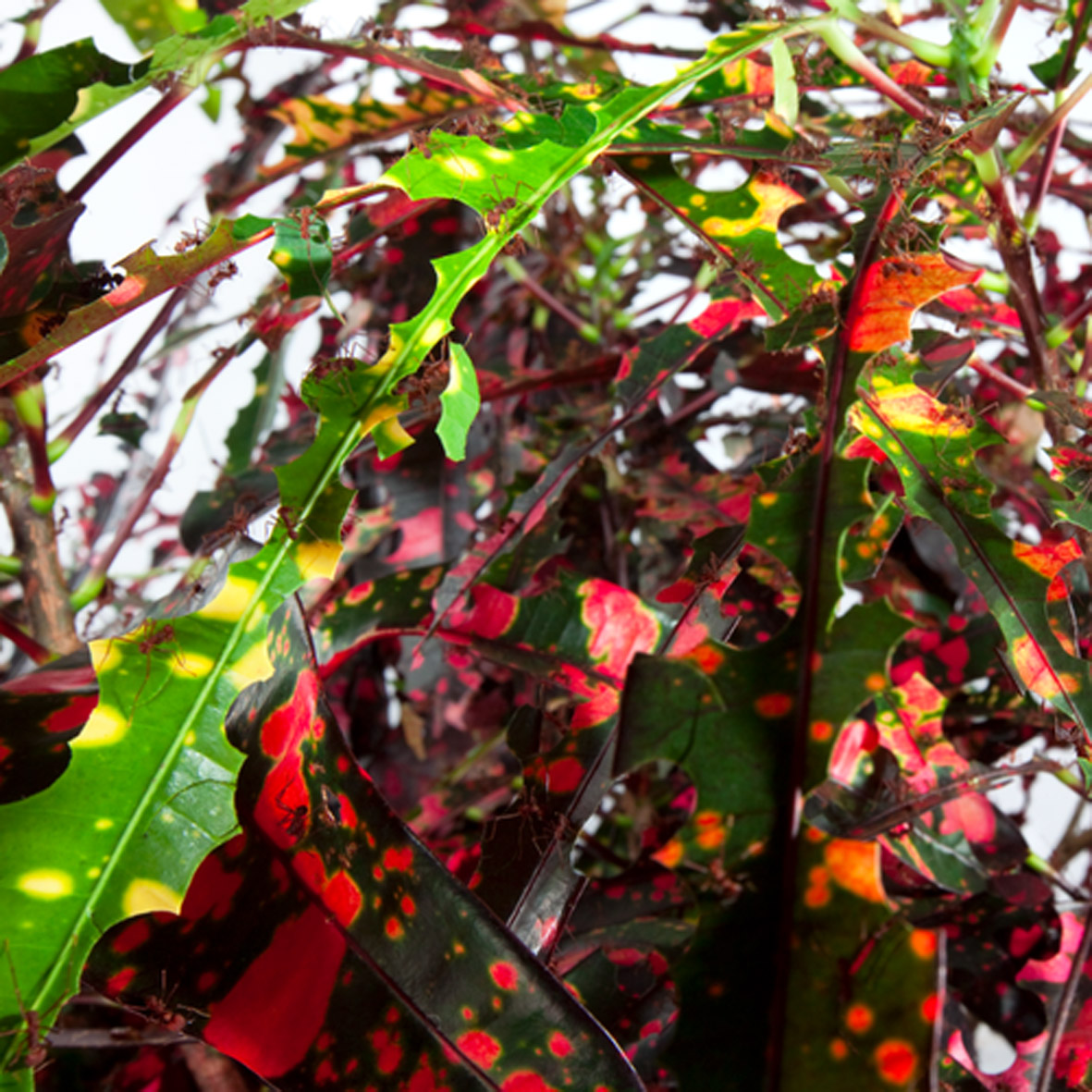 This Brooklyn-based composer's debut release for Students of Decay is quite an unusual effort, placing its emphasis most prominently on frequently untreated field recordings of natural spaces (as well as a few unnatural ones).  Even the instrumentation is atypical, as Guthrie uses violoncello and contrabass to weave a creaking, moaning bed beneath French horn playing that frequently sounds like a very large, very sad bird.  There is seemingly not much happening compositionally (overtly, anyway), but Codiaeum Variegatum's languorous, organic, and unfamiliar soundscapes are a lovely place to linger nonetheless.
This Brooklyn-based composer's debut release for Students of Decay is quite an unusual effort, placing its emphasis most prominently on frequently untreated field recordings of natural spaces (as well as a few unnatural ones).  Even the instrumentation is atypical, as Guthrie uses violoncello and contrabass to weave a creaking, moaning bed beneath French horn playing that frequently sounds like a very large, very sad bird.  There is seemingly not much happening compositionally (overtly, anyway), but Codiaeum Variegatum's languorous, organic, and unfamiliar soundscapes are a lovely place to linger nonetheless.
This album takes its name from the croton, a plant type with seemingly infinite leaf forms (and a very enthusiastic following).  In fact, it is probably safe to assume that Guthrie used crotons as the thematic basis for the album's content as well, as each of the six songs is titled with a descriptive phrase that could be used to describe a plant and all seem like (increasingly divergent) variations on a theme.  The opening "Branching Low and Spreading" nicely covers just about everything that Guthrie has to offer on Variegatum: deep, groaning string drones; quavering, animal-like French horn moans; and a backdrop of happily chirping birds near a river or waterfall.
The rest of the album does not initially depart very far from that pleasing template, which is perfectly fine–it just means that Codiaeum feels more like a single ebbing and flowing piece that grows increasingly strange rather than six discrete ones.  Things take a deceptively long time to go off the rails though, as "Strongly Leaning with Irregular Crown" only enhances its droning strings with an unexpected passage of bowed arpeggios and a very spirited squawking solo by a bird who is clearly trying to make the most of his big break.  "Unlike More Slender and Graceful," on the other hand, sounds like a negative image of the previous pieces, as Guthrie's strings sound distant, hollow, and vaguely metallic.  "Long Pendulous" is then even stranger still, sounding like Anne is playing strangled, moaning French horn in a sewer beneath a city, accompanied only by a chorus of angry tea kettles or a swarm of mutant crickets.
The proceedings continue to occupy very strange territory with the album's longest and arguably best piece, "Rough Above with Uneven Base," as Guthrie unleashes a wonderfully dissonant and undulating bed of hazy drones and horn swells.  I suspect the wobbly, "falling apart" feel of the drones is due to some sort of tape manipulation, but most of the piece is able to sustain the bizarre illusion that it is an untreated underwater field recording of a bunch of melancholy whales lamenting their lot in some foggy, secluded cove.  "Persists into Winter" then closes the album with a radical change in ambiance, dispensing with music almost entirely to approximate a very lo-fi reverb-heavy recording from the depths of a subway tunnel.  Guthrie occasionally bows a string or two, but the piece definitely seems most focused upon providing an unusual sense of place.
"Winter" is admittedly a somewhat weak note to end the album on, but a lot of Guthrie's charm lies in the album's lazily, meandering "aural travelogue" feel and in her restraint, so it is not exactly a wrong note.  The rest of Codiaeum Variegatum's appeal, for me anyway, is mostly due to the natural flow of the early pieces and their relative guilelessness.  In fact, a small part of me was actually disappointed that Anne took the album into increasingly experimental and subterranean places after its strong, but comparatively static, opening.  Ultimately, however, I liked this album quite a bit.  I certainly have not heard much else that sounds like this and Guthrie's confidence in throwing herself wholeheartedly into something so unconventionally musical is impressive, as is her complete avoidance of any clichés or current experimental music trends.  Codiaeum is a refreshingly understated, small-scale gem.
 
Read More

